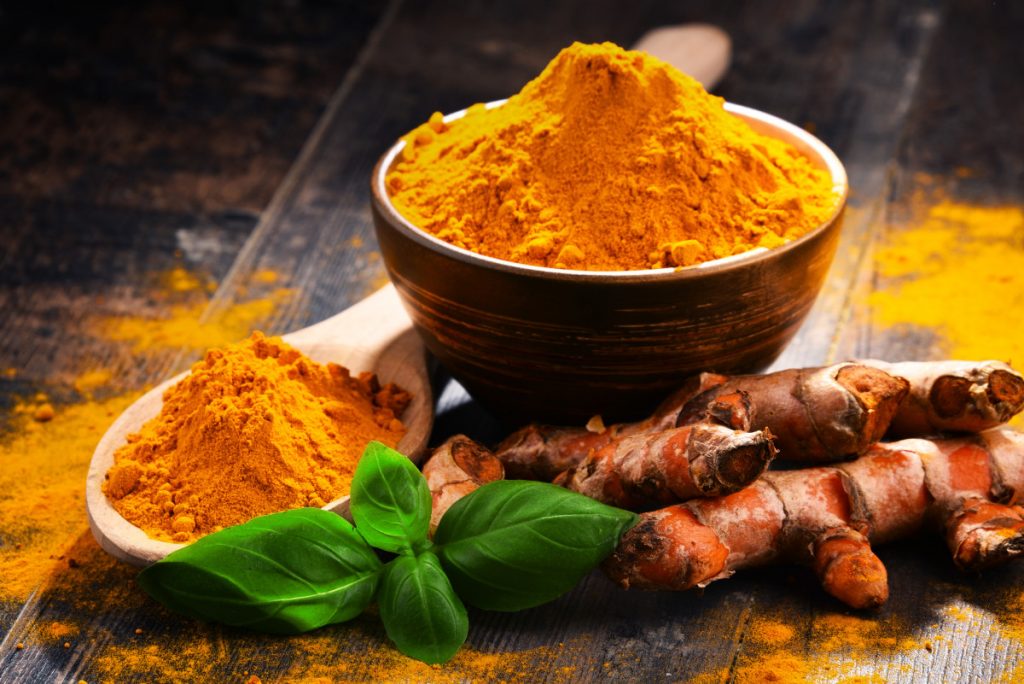Turmeric, a plant in the ginger family, is a spice that originated from the turmeric plant commonly used in Asian food. Curcumin is a major component and the functions are commonly credited to curcuminoids (curcumin and closely related compounds).
It has a warm, bitter taste and is frequently used to flavor or color curry powders, mustards, butters, and cheeses. But the root of turmeric is likewise utilized widely to make medicine.
According to the United States Department of Agriculture (USDA) National Nutrient Database, one tablespoon (tbsp) of turmeric powder contains:
- 29 calories
- 0.91 grams (g) of protein
- 0.31 g of fat
- 6.31 g of carbohydrates
- 2.1 g of fiber
- 0.3 g of sugar
That same 1-tbsp provides (1):
- 26 percent of daily manganese needs
- 16 percent of daily iron
- 5 percent of daily potassium
- 3 percent of daily vitamin C
Health Benefits of Turmeric
Arthritis is a long-term problem that can cause swelling, pain, as well as stiffness in the joints. It has been suggested that turmeric assists in minimizing or protecting against symptoms of joint inflammation.
Must read – Best choices to relieve arthritis pain
Research has actually found that curcumin substance promotes repair in the stem cells of the brain – the same stem cells that can assist in the healing from neurodegenerative illness like stroke as well as Alzheimer’s. It also recommended that curcumin might aid to improve memory in Alzheimer’s clients.
A couple of lab researches on cancer cells have revealed that curcumin has anti cancer effects. and seems to be able to kill cancer cells and prevent them from growth. It has best results on breast cancer, bowel cancer, stomach cancer and skin cancer cells.
Must read – Most common cancers in Women
Scientists additionally claimed that curcumin might play a better role in diabetic issues avoidance. Other research recommends that it can aid stabilize blood sugar levels and make diabetes condition more manageable (1).
Turmeric can likewise play a vital function in absorbing that food. As a result of its antioxidant and also anti-inflammatory residential properties, it can contribute to healthy and balanced digestion. It is used in ayurvedic medicine as a digestion healing agent.
Studies have supported to the claim that curcumin can decrease UV damages (it’s an all-natural antioxidant) and clear up acne (it’s also antibacterial) when related to skin. It might also reduce collagen malfunctioning as well.
Recommended read – Know more about benefits of antioxidants
Curcumin aids up in enhancing up the resistance and helps to combat against viral growth and subdues various inflammatory molecules which are accountable for the root causes of the damage by infections.
Turmeric can be helpful in reducing free radicals which are prospective to avoid heart disease, Alzheimer’s as well as cancer. It’s a powerful anti-inflammatory as well as antioxidant and might likewise help reduce symptoms of major depressive disorder (MDD).
The use of turmeric is understood to raise the manufacturing of the vital enzymes that purify our blood in the liver by breaking down and lowering the toxins. By improving blood flow also, it contributes in promoting liver wellness.
Suggested read – Factors affecting immunity
Turmeric helps to manage stomach concerns, metabolic disorders, and weight problems. Though the use of turmeric should be in moderation, however it’s extract is claimed to minimize the inflammation connected with weight problems, particularly weight loss.
Right time to eat
It is best recommended to consume on an empty stomach 30 minutes before a meal or two hours after one. Taking 400-800 mg every day considered healthy quantity, yet there is no specific recommended daily intake of it.
If you are experiencing heart burns, it is advised to take with milk, black tea, Indian Kadha, or with warm water every morning or you can enjoy it before bedtime. You can include it to meals in moderate amount – taking in large doses may have several side effects.
Disadvantages
- The turmeric might create an allergic reaction.
- It may cause indigestion sometimes.
- Some studies have shown that there are possible risks of developing kidney stones.
- It might cause nausea and diarrhea.
- The people with iron deficiency recommended consuming it cautiously.
- Turmeric might slow blood clotting or may cause extra bleeding during and after surgery. Hence, it is prompted to stop using turmeric at least 2 weeks before a scheduled surgery.
- If you are already with gallbladder issue, avoid using turmeric as it can make it worse.
